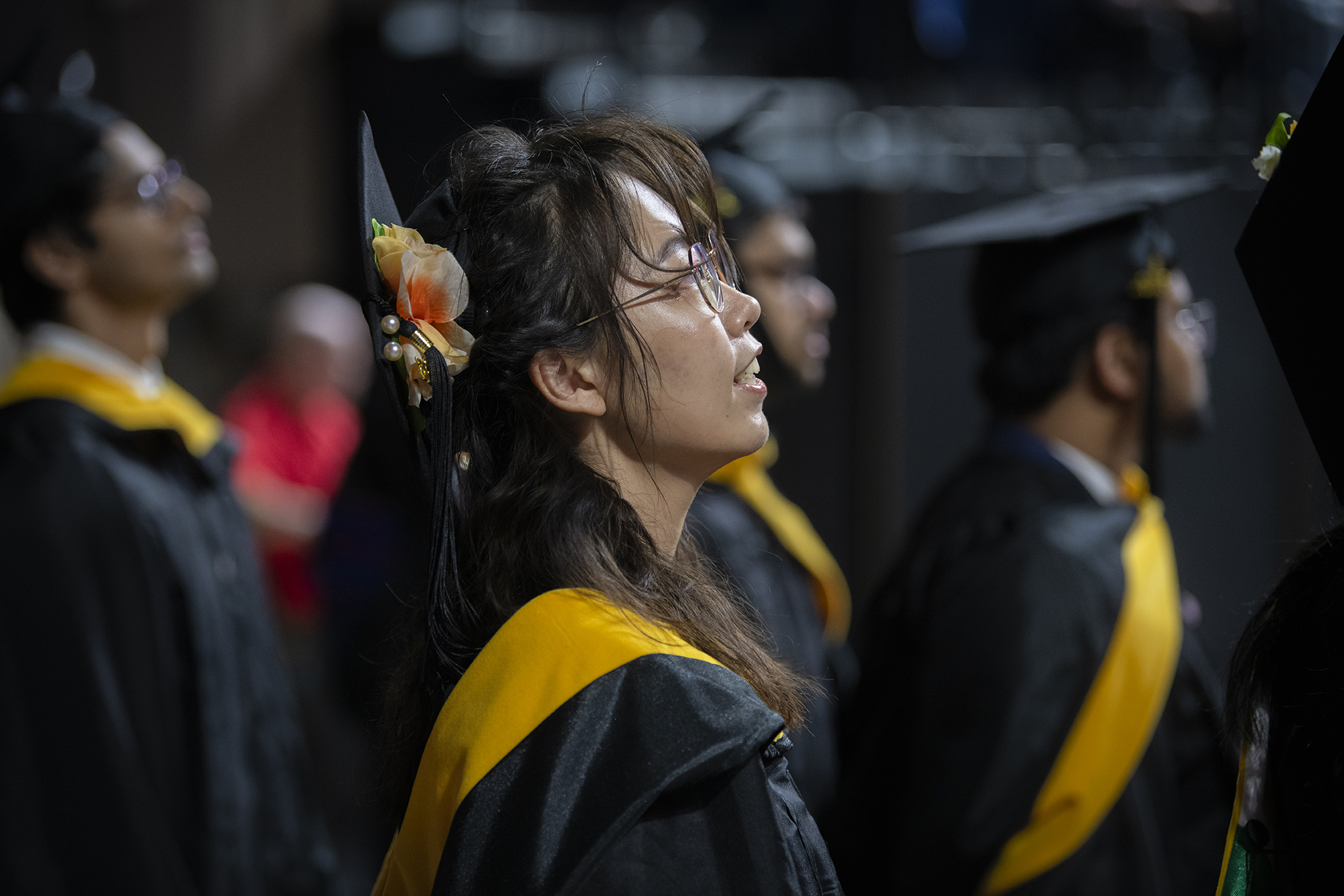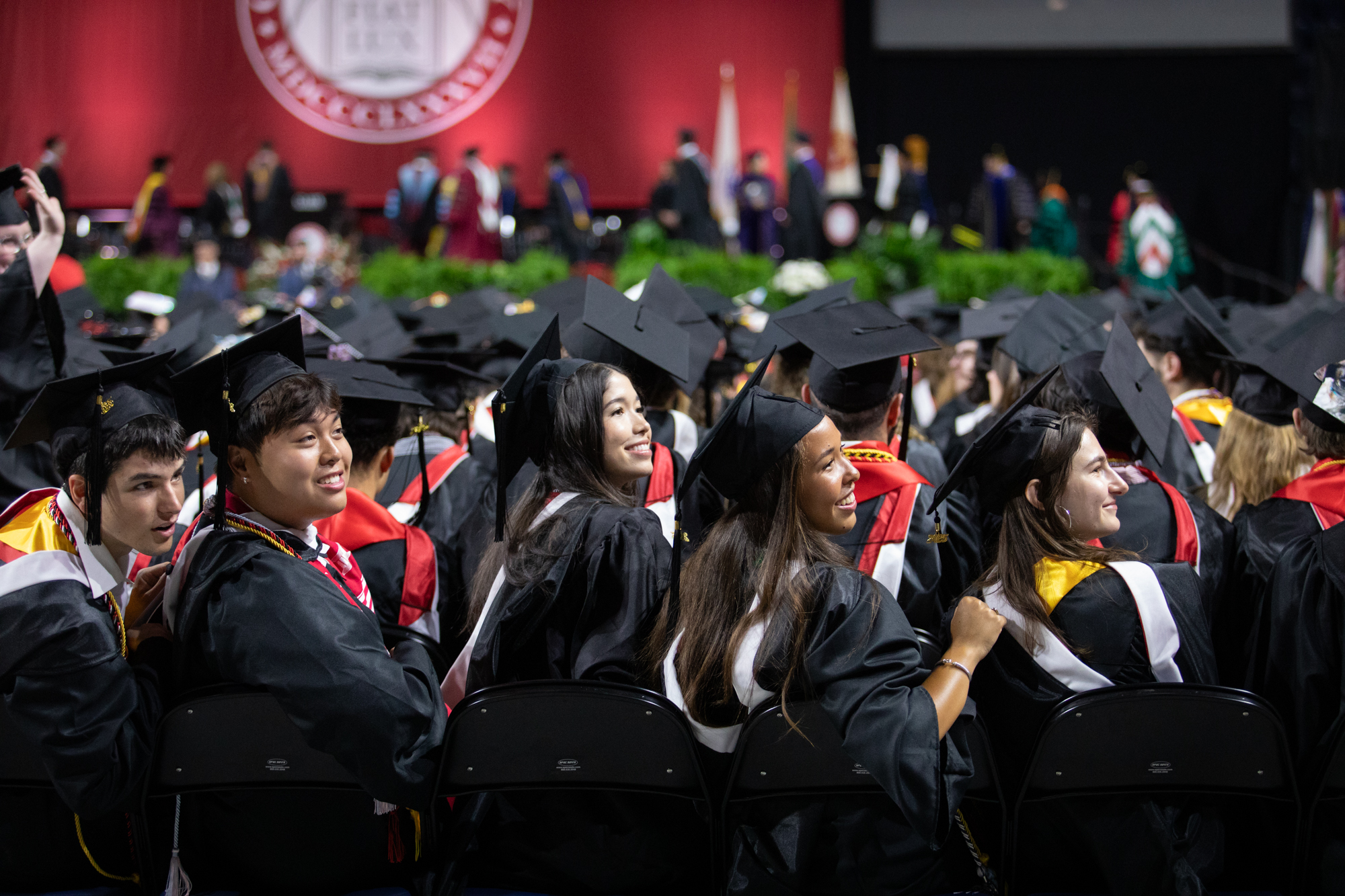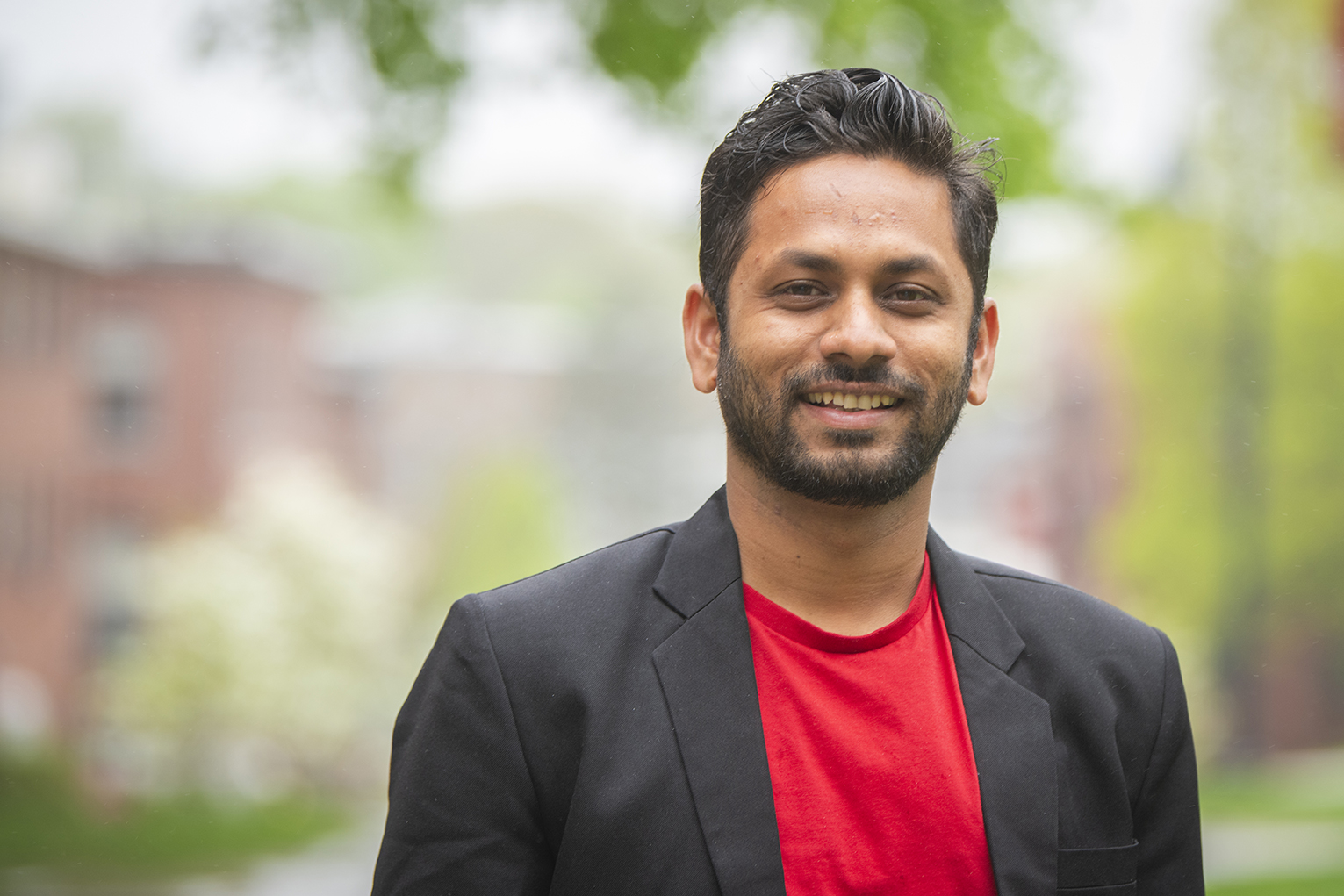Clark awards more than a thousand graduate degrees
“Turn to someone next to you, look them in the eye, and say: We did it.”
NPR journalist Ari Shapiro congratulated Clark University students receiving master’s and doctoral degrees during the Graduate Degree Commencement Ceremony and encouraged them to prioritize connecting with and helping those around them.
The University handed out 1,014 master’s and doctoral degrees to a class that included graduates from 41 states and 35 countries. In a separate ceremony earlier in the day, the University conferred 468 degrees to undergraduate students.
“These students should be rightly proud of their accomplishments not only as students but also as teachers, for they have given of themselves to enriching and educating the Clark community by bringing their experiences, perspectives, ideas, cultural understandings, and so much more to bear on the extraordinary learning community that is at the heart of our university,” said President David B. Fithian ’87. “I applaud you. I congratulate you. And I urge you to put to work — anywhere in the world you find yourself next — the knowledge you have developed and the skills you have honed here to address the challenges and opportunities we face as global citizens.”
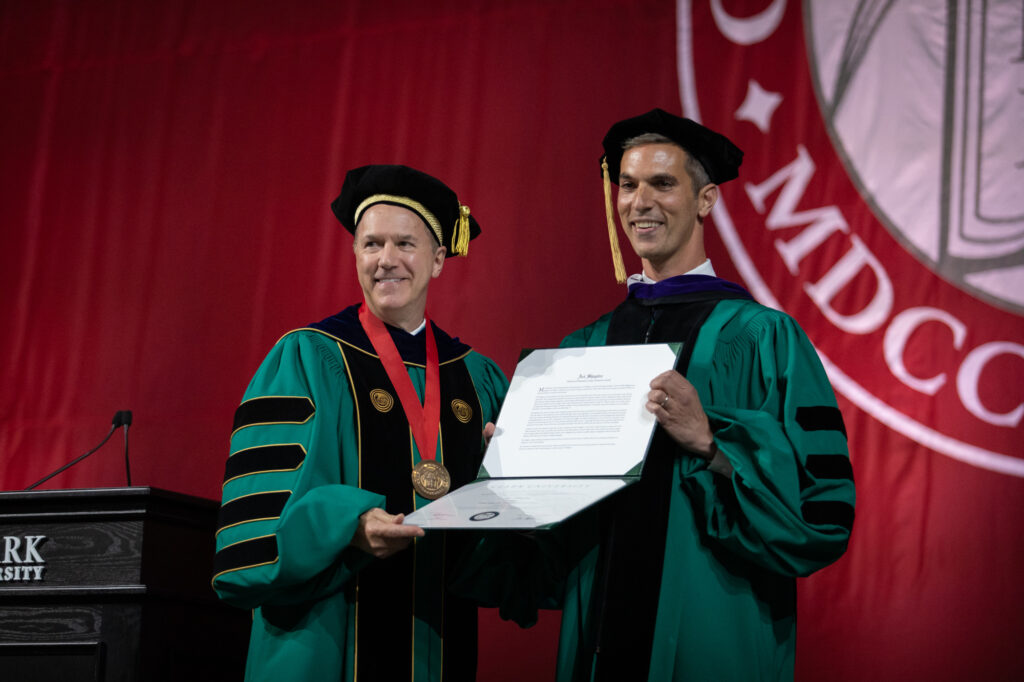
In his address after receiving an honorary Doctor of Letters degree, Shapiro, a host of NPR’s flagship news program All Things Considered, praised the graduates for completing their journeys. “You have pursued your degrees through pandemics, protests, political upheaval, and probably other words that start with ‘P’ that I can’t think of,” he said.
Shapiro urged the graduates to embrace their achievement while recognizing they will encounter hard times, “without letting that knowledge dampen our excitement and joy at this celebration.”
Shapiro said he is often asked how he stays optimistic even when surrounded by horrible things. “The answer is that in those places when people face tremendous hardship, I see humans show extraordinary selflessness and care and empathy.”
“It’s good to invest in your career, in your hobbies, in your passions,” he continued. “Those things can give you fulfillment, a sense of purpose, a paycheck. But it’s even more important to invest in your personal relationships.
“Another question I get a lot, one that you might be asking yourselves right now, is ‘Are we going to be OK?’” Shapiro continued. “Wrong question.”
“All of us carry a baton that our ancestors handed us. And all of us will pass it to those who come after us. Wherever we are in that relay race, there are people we can help. So the question we need to ask is, ‘How can I be helpful?’”
“I can’t wait to see the impact you have on the world,” he added.

Gary Labovich, chair of the Board of Trustees, challenged the graduates to think about how they will “show up” and engage with the working world as they leave “the cocoon” of Clark University. “Take it from me, a fellow graduate from the Class of 1981: Clark has prepared you well.”
“As you pursue your professional goals during your career, you will come to realize that the most important attributes prized by your organization are less about what you personally do, but more about how you positively impact those around you,” Labovich said.
Professor Kristen Williams, chair of the faculty, urged the graduates to remember that, in effect, “knowledge is power.”

“When we think of knowledge as power, think of your own educational experiences at Clark, whether in the classroom, community engagement projects, internships, study abroad, fieldwork, and so forth. You were invariably asked to ponder research questions: “how” and “why?” Williams said.
“You have a life ahead of you full of possibilities and promise,” she added, encouraging the graduates to use their knowledge to make a difference in the world.
Kumar Gaurav, MBA ’25, delivered the graduate student remarks. “Today is more than a milestone — it’s a moment I never imagined would come,” he said, explaining that in his hometown in India, the idea of studying in the United States was “as distant as the stars.”
“Being a first-generation student means you often walk in the dark,” he said. “There’s no map. Only the hope that you’re headed somewhere meaningful. But then I arrived at Clark. Here, I found more than classrooms and case studies. I found light. Fiat Lux — Let there be light — the mark of our university, is not just etched in stone. It lives in the people here.”
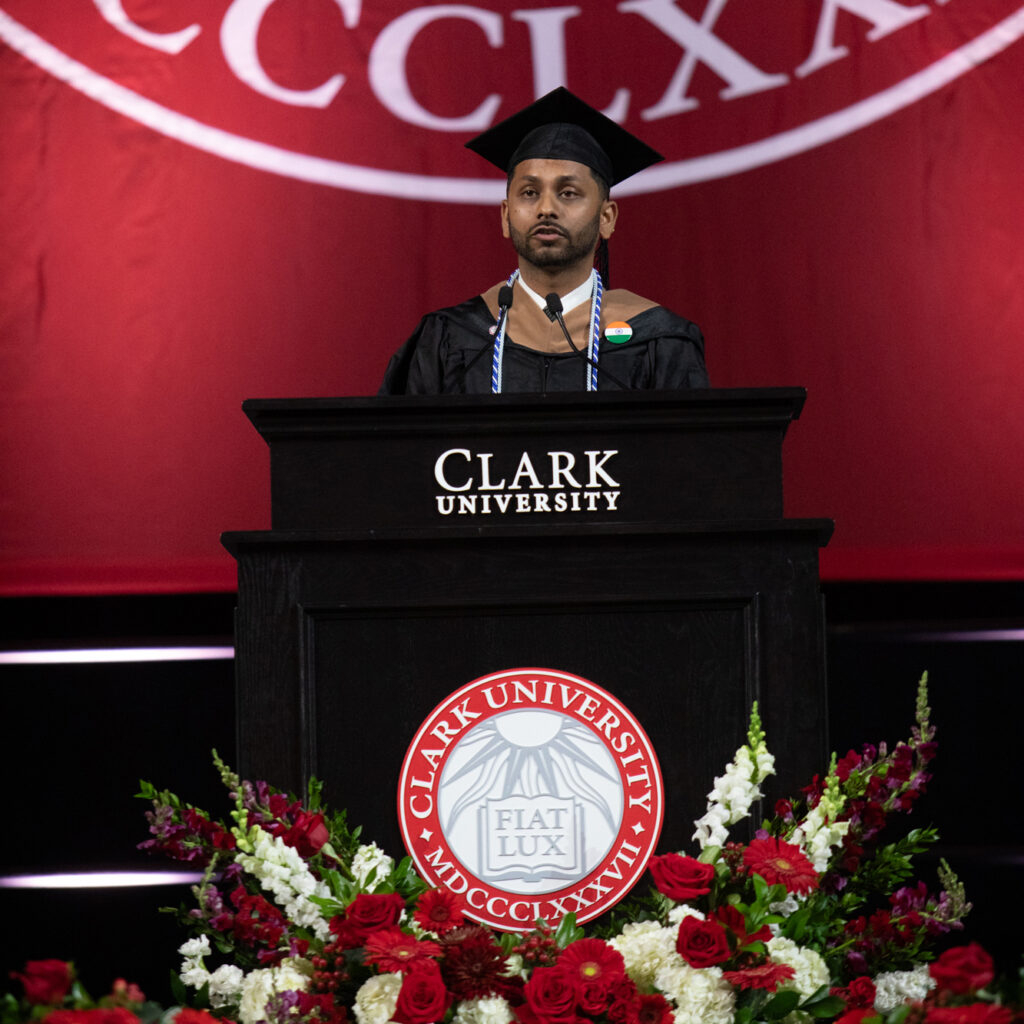
Gaurav invited his fellow graduates to strive not for longer lives, but to live “larger” lives that are purposeful, bold, compassionate, and impactful. “Let us not be defined by the title we hold next, but by the people we lift, the voices we amplify, and the ideas we dare to pursue.”
“We are not just graduates. We are torchbearers. And wherever life takes us next, may we always bring light.”
Bringing the ceremony to a close, President Fithian said, “Today’s exercises are a time-honored tradition that not only recognizes individual achievement but also institutional history and the relationship between the two.
“As I noted at the beginning, our graduates are all different, and yet you are now all the same in one respect. You are all graduates of Clark University.”


